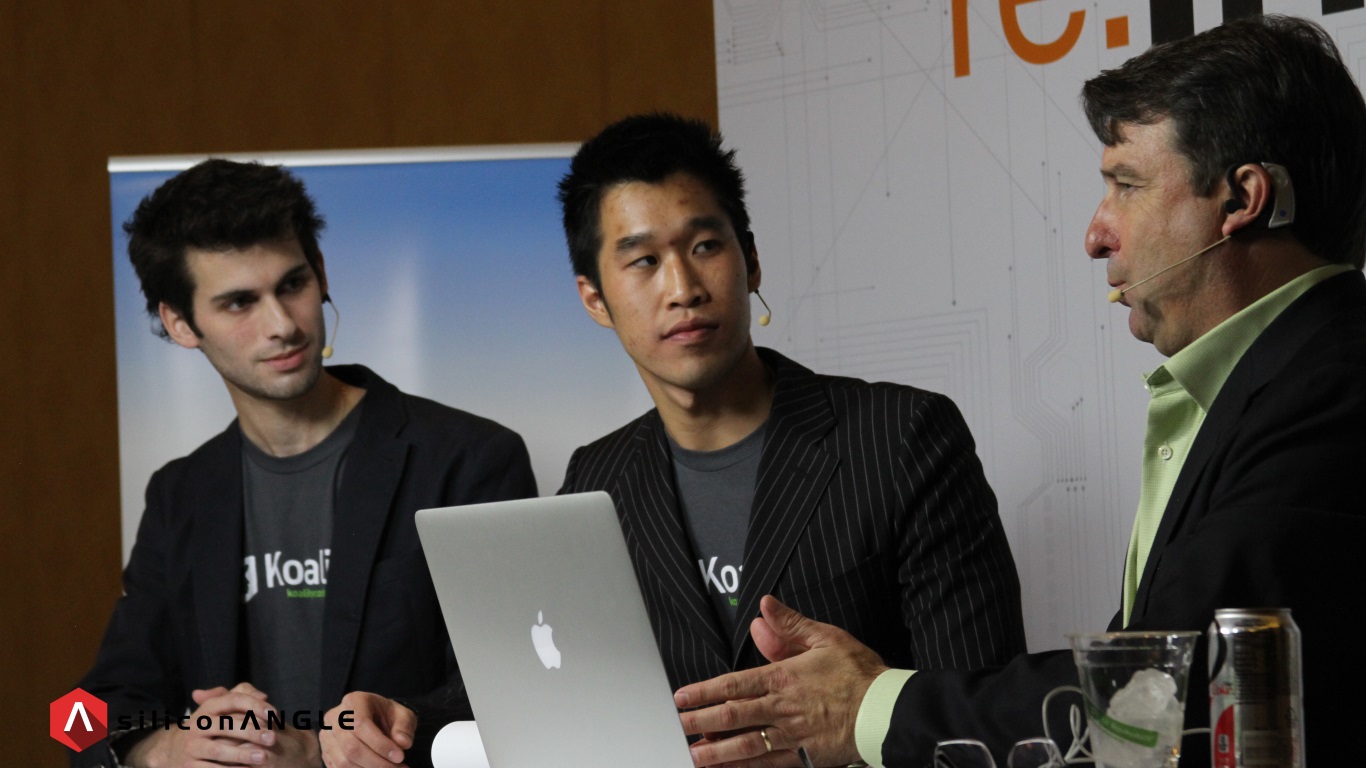 NEWS
NEWS
 NEWS
NEWS
 NEWS
NEWS
Koality Co-Founders Jonathan Chu And Jordan Potter In theCUBE At AWS re:Invent
Docker Inc. is putting its new funding to good use with the acquisition of Koality Inc., a fellow startup that sells software testing tools geared towards enterprise developers with strict security standards to uphold. The deal puts the Linux containerization specialist in a better position to monetize its namesake project, which allows users to package applications into lightweight and standardized modules that can be seamlessly moved among different types of environments.
That value proposition has catapulted Docker out of obscurity and into center of the hybrid cloud discussion, earning it big-name partners such as Linux stalwart Red Hat Inc. and tens of thousands of users in a matter of months. The success of the open-source tool had in turn caught the attention of the venture capital community, which recently poured $40 million into Docker as part of a financing round first revealed just over two months ago while negotiations were still underway and officially confirmed a few weeks later.
The acquisition of Koality represents a fitting follow-up for the funding, sending a clear message to investors that the firm has not fallen into the trap of becoming tunnel-visioned on growing its community momentum at the expense of revenue opportunities. The two-year-old Koality offers a continuous integration solution designed to help developers test their code for bugs and other faults in a hurry.
Jonathan Chu, the founding CEO of the startup, explained in an interview on SiliconANGLE’s theCUBE (see below) that the software aims “to maximize engineering efficiency because engineers are very expensive, so the faster they get out code the better.”
Chu added that Koality’s has several major customers, including home decor powerhouse One Kings Lane Inc. and a top file sharing service. The platform has also gained significant traction in the Docker community, which is presumably one of the main drivers behind the acquisition.
The containerization specialist apparently hopes that Koality provide a boost for Docker Hub, a GitHub-inspired collaboration service designed to monetize the surging developer adoption of its namesake tool into which Koality’s technology is to be incorporated. That’s just one of the factors that led to the acquisition, however.
There’s also the fact that the startup built its testing solution to allow customers to deploy it behind their firewall and securely extend their installations into Amazon Web Services without any back-end tinkering, an approach that aligns well with Docker’s hybrid cloud focus. Also important is that Chu and his co-founders hail from Palantir Technologies Inc., a pioneering analytics vendor that caters specifically to security-conscious government agencies and financial institutions.
As Google Compute Engine (GCE) head Craig McLuckie pointed out in a recent appearance on theCUBE, Docker relies almost exclusively on the security mechanisms built into Linux, but that those fall short for enterprise environments. The deal holds at least as much strategic significance to Docker as the firm’s first acquisition three months ago, a two-man team calling itself Orchard Laboraties Ltd. that develops management software for containers.
Support our mission to keep content open and free by engaging with theCUBE community. Join theCUBE’s Alumni Trust Network, where technology leaders connect, share intelligence and create opportunities.
Founded by tech visionaries John Furrier and Dave Vellante, SiliconANGLE Media has built a dynamic ecosystem of industry-leading digital media brands that reach 15+ million elite tech professionals. Our new proprietary theCUBE AI Video Cloud is breaking ground in audience interaction, leveraging theCUBEai.com neural network to help technology companies make data-driven decisions and stay at the forefront of industry conversations.